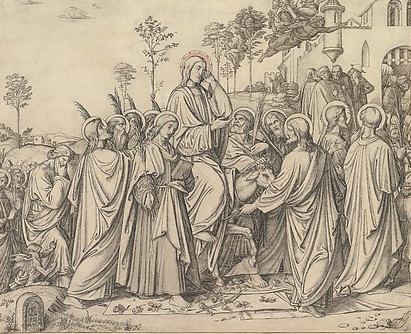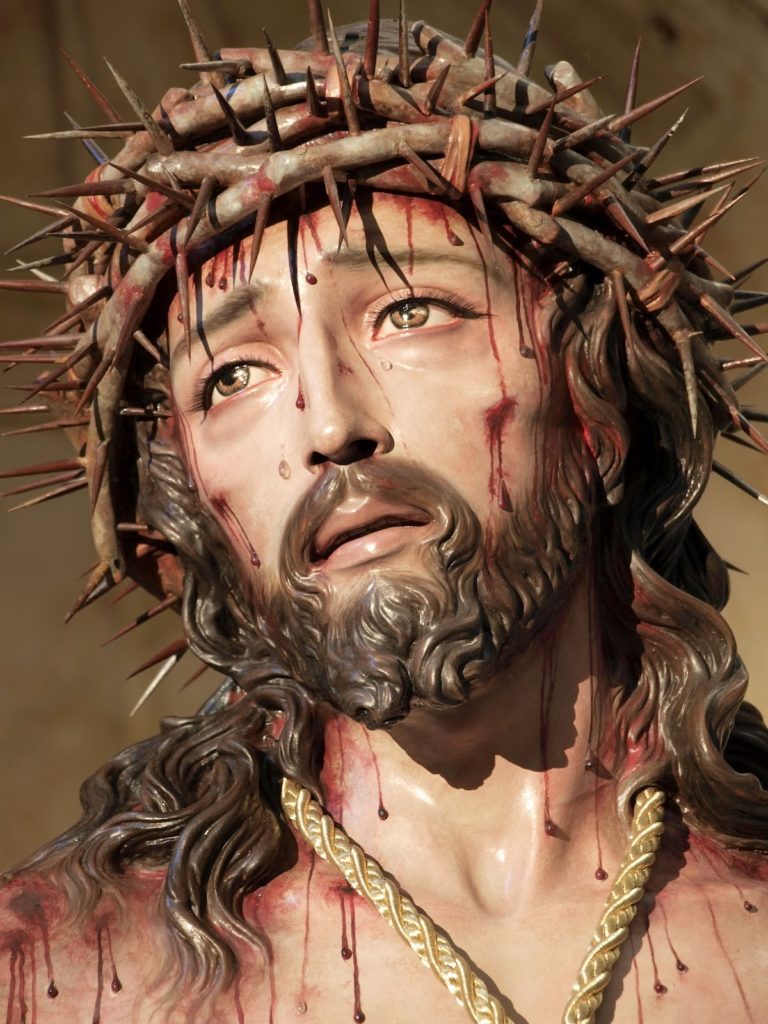
[During Holy Week], our loving awareness in silent attentiveness should be focused on the sacred humanity of Jesus. This is one of St. Teresa of Avila’s essential teachings: the sacred humanity of Jesus is always at the heart of genuine Christian mysticism, and this truth immerses us in the embrace of God’s mercy.
This loving awareness and silent attentiveness describes the contemplative spirit and disposition.
We all know that true prayer, true contemplative prayer, is a gift. It’s not something that can be acquired by technique or method. It’s not something that we can ascertain for ourselves by our best efforts or by our perfection and performance in terms of ability to concentrate or focus.
That’s not Christian mysticism at all. Christian spirituality and mysticism, being immersed in the gift of God’s mercy, is a relationship, not some transcendental experience with an impersonal divinity.
This loving awareness and silent attentiveness disposes our hearts to be open to receive the gift of His presence. We need to be open to receive God’s presence as gift. In other words, I can’t “make” God act in my life by doing certain prayers. I cannot manipulate God by my prayers. That’s imagination, not faith. That it is in the realm more of superstition, magic, spiritism and the occult – not faith as a child of God.
So we dispose ourselves to receive the gift of His presence, to allow God to be God in us by being still and knowing that He is God and supreme over everything. To do our best to abide in Him, to put ourselves in a receptive state of trust before the merciful face of our Father God. This week, abide in His love.
Abiding in His agape is the teaching of contemplative prayer insofar as it can be taught because it’s essentially a gift. Contemplative prayer is essentially a matter of surrender. At its essence, it’s surrender. Because it’s what God does more than what we do. Therefore, we cannot…we don’t have rights to the gift of contemplation. We don’t have rights to that gift, to meet that experience. It is essentially a gift that’s given, not something that I produce.
Therefore, contemplative prayer can only be taught in it earliest stages in the sense of acquired contemplation as taught by St. John of the Cross. That term acquired contemplation is a reference to what St. Teresa [of Avila] calls the prayer of simplicity, the prayer of recollection. In its earlier stages: in other words, before it becomes infused, before it becomes God’s grace and gift active in me and not simply what I am doing by my good intentions and by my will or by my consent.
All that can be taught is how to dispose ourselves for the gift of echoing the desire of the disciples when they asked Jesus, “Teach us to pray.” Teach us to pray. As John the Baptist taught his disciples, as the friend of the Bridegroom taught his disciples, as the bright and shining lamp who blushed before the sun taught his disciples, as he who decreased that Christ may increase taught his disciples: “Teach us to pray. Teach us to know Your Father as holy in the way that You have as union and bond with Him.”
The heart of the Carmelite apostolate is teaching how to pray. It’s a contemplative apostolate in teaching people how to enter into divine intimacy with God’s love. (to be continued)
SOURCE: Auburn Retreat, 2016. Transcribed by Sue Ellen Browder
Copyright 2017, Father Robert Barcelos, OCD




